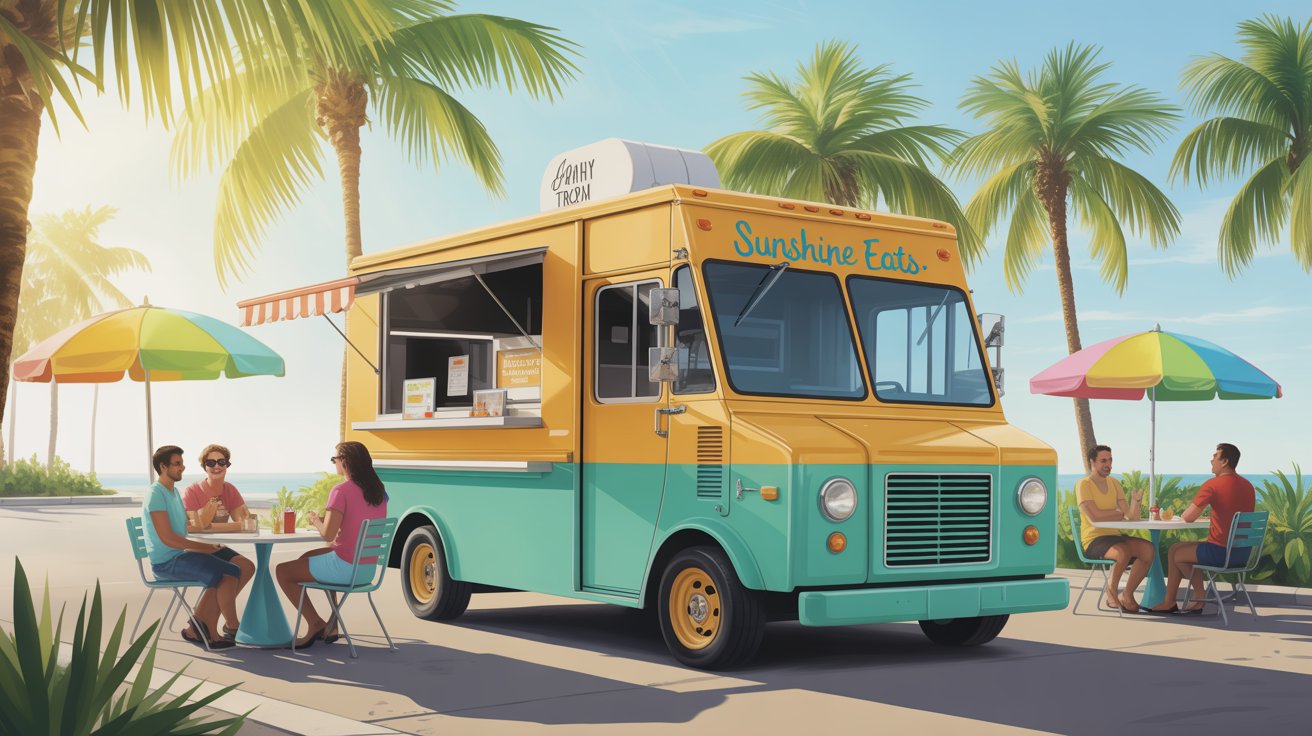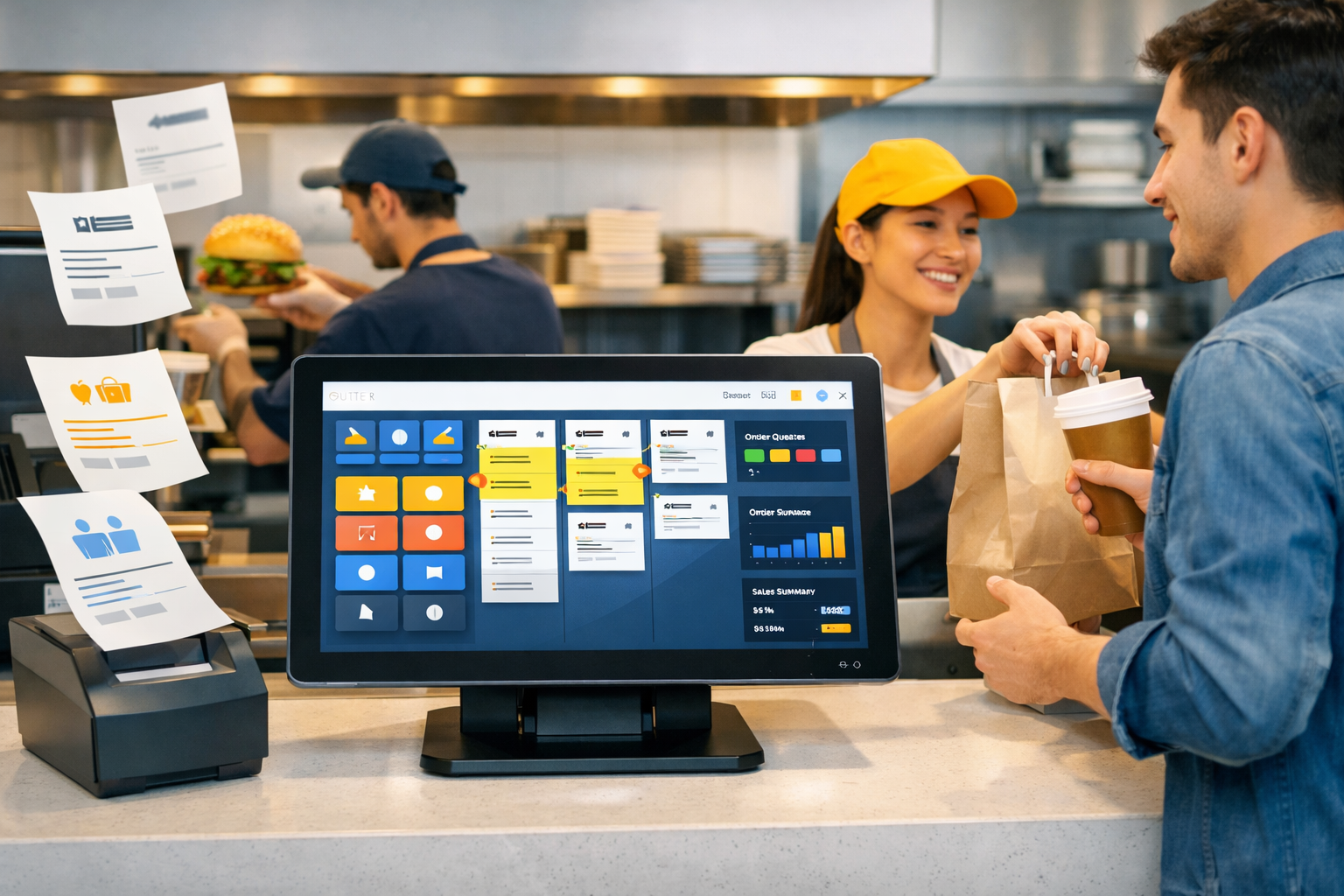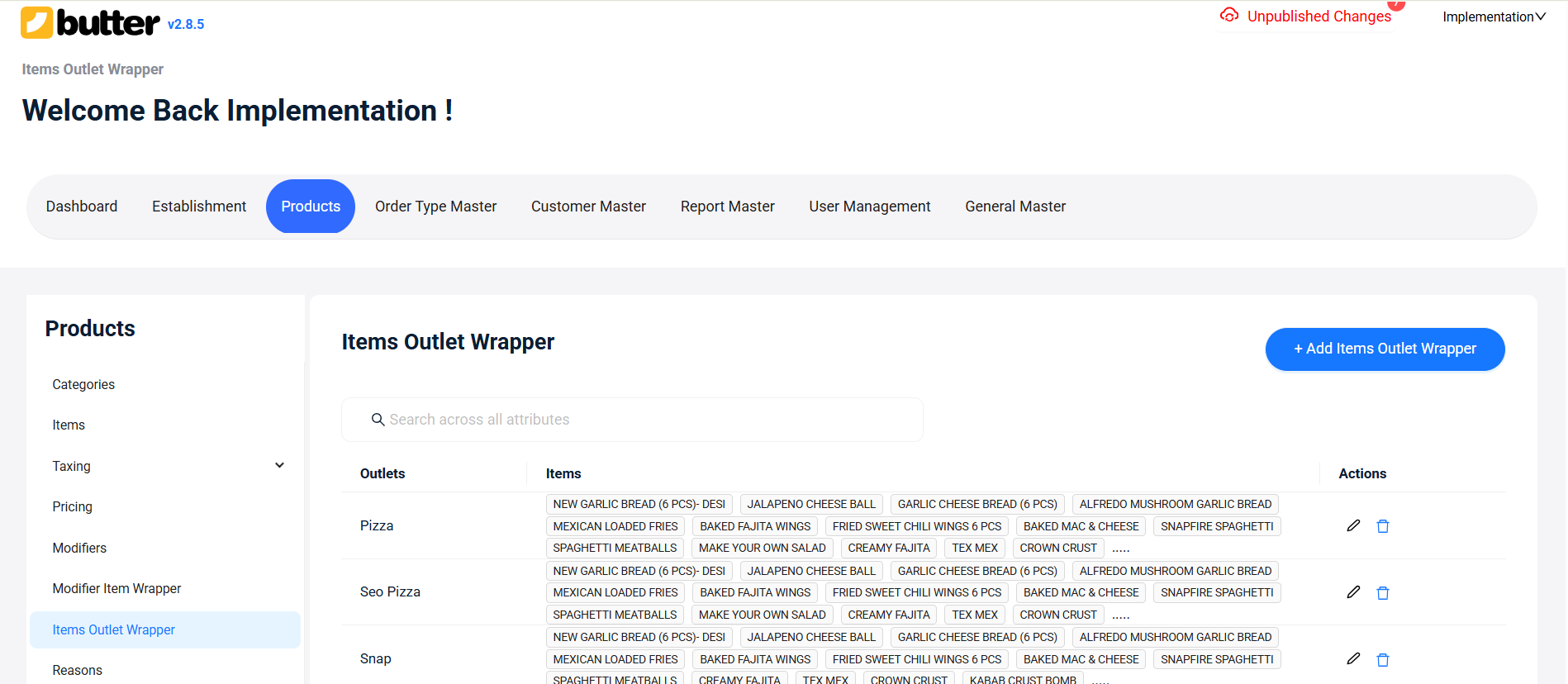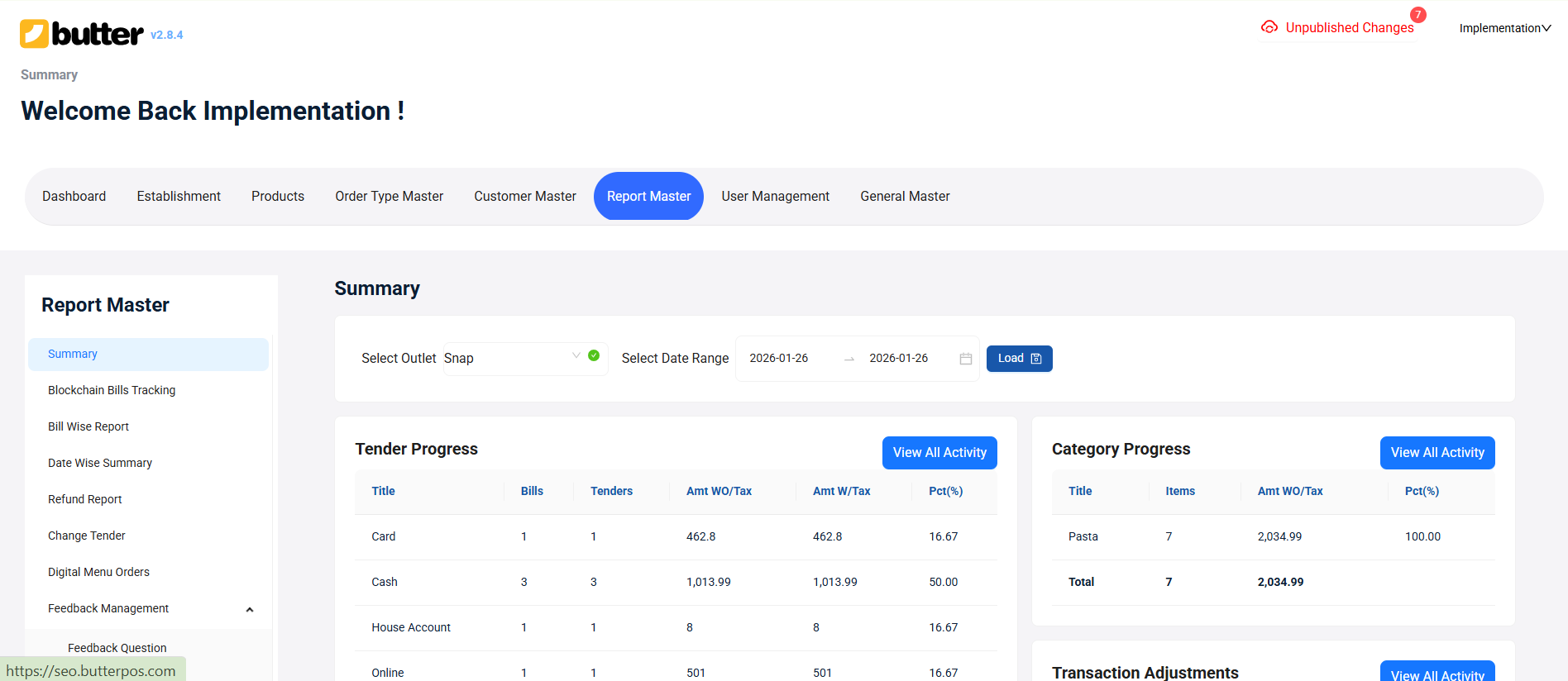Thinking about launching a food truck business in Florida? You're in the right place. With its year-round sunshine, booming tourism, and vibrant street food culture, Florida is one of the best states in the U.S. to start a food truck business.
But keep in mind, starting a food truck in Florida isn’t just about buying a truck and cooking great food. You’ll need to follow a specific set of steps, get the right licenses, understand local regulations, and make smart business decisions from day one.
This guide walks you through everything, from crafting your concept and choosing your truck to securing permits and finding the best locations to park and profit.
So, if you're dreaming of selling Cuban sandwiches in Miami or fresh tacos in Tampa, we’re breaking it all down step by step.
If you want a visual representation on how to start a food truck bsuiness in Florida, watch the following video:
Steps on How to Start a Food Truck Business in Florida
Follow the below-mentioned steps to take your food truck business from scratch to sales.
1) Research the Florida Food Truck Scene
Florida isn’t just beaches and theme parks, it’s a hotbed for mobile food entrepreneurs.
Before jumping in, spend time understanding your local market. Visit busy areas like Miami’s Wynwood Art District, Orlando food truck events, or Tampa’s downtown lunch rush.

Research Your Market & Concept
Understand your audience and stand out with the right concept.
Ask yourself:
- What cuisines are oversaturated?
- Where’s the gap in the market?
- Which cities have strict vs. flexible vending laws?
Research now saves time, money, and heartache later.
2) Create a Simple but Smart Business Plan
A food truck is a real business, treat it like one. Your plan doesn’t need to impress investors, but it should guide your decisions.
Include:
- Concept: What’s your signature dish or theme?
- Startup Budget: Truck, permits, marketing, etc.
- Break-even Estimate: How long until you’re profitable?
- Target Audience: Office crowd, tourists, students?
- Marketing Strategy: Social media, local events, catering?
Planning ahead helps avoid “winging it” later.
3) Figure Out Your Budget & Secure Funding
Starting a food truck in Florida generally costs $70,000–$125,000, depending on your location and truck setup.
Common costs include:
- Food truck: $40K–$80K
- Licenses & permits: $3K–$5K
- Equipment & supplies: $10K–$15K
- Commissary kitchen: $500–$1,500/month
- Branding & marketing: $2K+
Funding options:
- SBA microloans (Florida SBDC is helpful)
- Equipment leasing companies
- Local food business grants
- Crowdfunding (Kickstarter, GoFundMe)
Pro Tip: Start small but scalable. Don’t go broke on your first wrap design.
4) Buy or Lease a Food Truck
Your truck is your kitchen, storefront, and brand. Choose wisely.
- Buy new if you want custom layout + latest equipment
- Buy used if you're watching costs (but inspect it professionally)
- Lease if you're testing the waters
Important checklist:
- Does it meet Florida Department of Health standards?
- Proper ventilation & fire suppression?
- Cold and hot holding equipment working?
- Plumbing + electrical all up to code?
Recommendation: Use local builders like Prestige Food Trucks (Orlando) or Florida's Custom Food Trucks who understand state laws.
5) Get Your Licenses and Permits
You can’t legally operate without these. Florida has specific state and county-level requirements (we’ll go deep in the next section), but here’s a snapshot:
- Business License (from local city/county)
- Mobile Food Dispensing Vehicle (MFDV) License from DBPR
- Food Handler Certificates (for all staff)
- Sales Tax Registration (DR-1 Form)
- Fire Safety Inspection Certificate

Required Licenses & Permits
Find out which licenses you need to start your food truck in Florida—download the full checklist now.
Don’t skip this step, operating without proper permits in Florida can lead to immediate shutdowns.
6) Find a Commissary Kitchen (If Required)
In most Florida counties, food trucks must be linked to a licensed commissary — a commercial kitchen for food prep, cleaning, and overnight parking.
Commissary kitchens offer:
- Prep tables and cooking space
- Storage for ingredients
- Grey water disposal
- Potable water refill stations
- Truck cleaning areas
Cities like Orlando, Tampa, and Miami usually require proof of commissary use before issuing final permits.
7) Choose Your Locations Wisely
Location is everything! In Florida, vending laws vary by city and even by street.
Best places:
- Office parks during weekday lunch
- Tourist-heavy beaches and theme parks
- Nightlife zones (Wynwood, Ybor City, South Beach)
- Farmers markets, food truck nights, festivals
- Local breweries, campuses, or stadiums
Always check zoning laws. Some areas ban trucks from public streets without a vendor license or event permit.
8) Set Up Your Branding & Marketing
Your food can be amazing, but if your truck looks basic and your Instagram is dead — you’re invisible.
Must-haves:
- Eye-catching logo + wrap design
- Printed + digital menu (easy to update for specials)
- Active social media: Instagram, Facebook, TikTok
- Google Business Profile with live location updates
- POS system for fast ordering + tips
Tag local foodie pages and influencers. Florida loves discovering new street eats online.
9) Hire Your Crew (If Needed)
Not every truck needs a full crew — but if you're expecting high volume, you’ll need speed and hygiene.
- Hire 1–2 team members to start
- Everyone must complete food handler training (ServSafe is widely accepted)
- Create basic checklists for prep, service, and cleaning
Friendly, fast, and clean staff is what customers remember most.
10) Launch Soft — Then Go Big
Start with a soft launch at a friend’s brewery, a local park, or a private event. Collect feedback, test your flow, and fine-tune your menu.
Your launch checklist:
- Test all equipment (on the road during service)
- Offer a limited-time “Grand Opening Special”
- Encourage reviews on Google and Yelp
- Capture content for social media
Don’t chase perfection — aim for real feedback early. That’s how winning food trucks grow fast.
Licenses and Permits Needed to Start a Food Truck in Florida
Starting a food truck in Florida means following both state and local laws. If you miss even one essential license or permit, you could face fines or get shut down by inspectors — even on day one.
So here’s exactly what you need:
Business License / Tax Receipt
Every food truck must register as a legal business in the city or county where it operates. This gives you a Local Business Tax Receipt, formerly called an Occupational License.
Issued by: Your city or county tax collector’s office
Cost: $30–$150 annually (varies by location)
Where to apply:
- Florida Department of Revenue - Local Tax Offices
- Or check your county website (e.g., Miami-Dade, Orange County, Hillsborough)
Pro Tip: If you plan to operate in multiple counties, you may need to register in each one.
Mobile Food Dispensing Vehicle License (MFDV)
This is your main operating license. Every food truck in Florida must register as a Mobile Food Dispensing Vehicle (MFDV) through the DBPR’s Division of Hotels and Restaurants.
Issued by: Florida Department of Business and Professional Regulation (DBPR)
Requirements include:
- Commissary agreement (unless self-sufficient unit)
- Floor plan layout
- Proof of equipment compliance (refrigeration, sinks, etc.)
- Water and wastewater systems
- Fire safety standards
Cost: ~$347 annually
Renewal: Every year
Where to apply: DBPR Online Licensing Portal
Pro Tip: Submit your application early. It can take 2–4 weeks for approval, and an inspector may visit your truck.
Commissary Agreement Form
Most food trucks in Florida must operate from an approved commissary — a licensed commercial kitchen where you can prep food, dump waste, refill water, and store ingredients.
Required by: DBPR
You’ll need:
- A signed agreement with a licensed commissary
- Commissary address on file with DBPR
- Proof of inspection from the commissary site
Commissary kitchen cost: $500–$1,500/month (varies by city & amenities)
Commissary search tip: Try local coworking kitchens like Kitchen AF (Orlando) or The Spot (Miami).
Some cities won’t even consider your food truck permit until you show proof of commissary access.
Food Handler Certification
This is mandatory under Florida law. You and your team must complete a food safety training course from an approved provider.
Required for: Every person handling food in your truck
Commonly accepted:
- ServSafe Food Handler
- Learn2Serve
- Always Food Safe
Cost: $10–$25 per person
Renewal: Every 3 years
Where to get it: ServSafe.com
Keep printed certificates in the truck in case of inspection.
Sales Tax Registration (Florida Certificate of Registration)
To legally collect and pay sales tax in Florida, you must register for a Florida Certificate of Registration using Form DR-1.
Issued by: Florida Department of Revenue (DOR)
This allows you to:
- Charge sales tax to customers
- File monthly or quarterly returns
- Stay compliant with state revenue laws
Cost: Free
Where to apply: Register Online Here
Florida’s state sales tax is 6%, but counties may add a local surtax (e.g., Miami-Dade adds 1%).
Fire Safety Inspection Certificate
Before you're allowed to cook and operate, your truck must pass a fire safety inspection, especially if you’re using propane, fryers, or grills.
Issued by: Local Fire Marshal or Fire Department
Inspectors will check for:
- Certified fire suppression system
- Fire extinguishers (Class K required)
- Proper gas line installation
- Hood ventilation system
- Safe electrical connections
Cost: $100–$300
Where to apply: Your city or county fire department
Always have your fire suppression system serviced annually and keep logs on hand.
Vehicle Registration & Insurance
Yes, your truck is a commercial vehicle, and it must be:
- Registered in Florida
- Insured with commercial auto insurance
- Possibly wrapped under general liability + product liability insurance too
Issued by: Florida Department of Highway Safety and Motor Vehicles (FLHSMV)
Insurance cost: $2,000–$4,000/year depending on coverage
Without insurance, you risk losing your business over a single accident or foodborne illness claim.
Florida Food Truck Licenses & Permits
| Permit | Who Issues It | Est. Cost |
| Business License | City/County | $30–$150 |
| MFDV License | DBPR | $347/year |
| Commissary Agreement | DBPR | $500–$1,500/month |
| Food Handler Certs | ServSafe, etc. | $10–$25/person |
| Sales Tax Reg (DR-1) | Florida DOR | Free |
| Fire Inspection | Fire Dept | $100–$300 |
| Commercial Insurance | Private insurers | $2,000–$4,000/year |
Benefits of Starting a Food Truck Business in Florida
Starting a food truck anywhere is exciting—but doing it in Florida gives you a serious head start. Here’s why:
1) Year-Round Warm Weather
In many states, food truck season is limited to spring and summer. But in Florida?
You’re open nearly 365 days a year.
- No snow shutting you down.
- No long off-seasons to worry about.
- Perfect weather for beaches, events, and hungry tourists all year long.
Result: More sales, steady income, and quicker ROI.
2) Florida Is a Tourist Powerhouse
Florida welcomes over 130 million tourists a year — and guess what? Tourists love trying street food and local flavors.
Hot Spots to Target:
- Beachfronts (Clearwater, Daytona, Miami)
- Theme Parks & Tourist Strips
- Farmer’s Markets
- Local Events & Music Festivals
Pro Tip: Cities like Tampa and Orlando often allow food trucks at breweries and outdoor bars — high foot traffic guaranteed.
3) Lower Startup Costs
Opening a traditional restaurant can cost $250K+ easily in Florida. A food truck? You can get rolling for $40K–$100K.
What you save in rent, staffing, and utilities goes into:
- Better ingredients
- Stronger branding
- Flexibility to test different markets
Bonus: No long leases or landlord headaches.
4) Freedom to Go Where the Money Is
This is one of the biggest wins. You’re not locked into one location. If business is slow in one spot, you move to where people are.
Florida’s dense mix of:
- College towns
- Retirement communities
- Sports events
- Outdoor festivals
It means you can adapt quickly and grow fast.
Real Example: Food trucks near college campuses in Gainesville and Tallahassee often earn $1,000+ a day just during lunch hours.
5) Strong Earning Potential
Florida food trucks commonly report:
- $5K–$10K/week in revenue (established trucks)
- $1K–$3K/day during events or busy seasons
While success depends on your niche and consistency, many Florida truck owners report six-figure annual incomes after year one.
6) Perfect for First-Time Entrepreneurs
If you’re new to the food industry, Florida offers:
- Easier licensing than some states (like California or New York)
- Plenty of online commissary kitchens to rent
- Low-barrier entry in smaller towns and suburbs
It’s a fantastic test market before expanding into multiple trucks or a permanent location.
Your Florida Food Truck Dream Starts Now
Starting a food truck business in Florida isn’t just possible — it’s profitable, exciting, and full of opportunity. With sunshine all year round, millions of hungry tourists, and supportive local communities, Florida gives you the perfect stage to bring your food vision to life.
Whether you're serving up tacos on the beach, smoothies at a farmer’s market, or gourmet burgers near a college campus, your food truck can thrive here if you plan it right.
But remember, great food alone isn’t enough. Smart operations = smooth growth.
Power Your Food Truck with Butter POS
Running a food truck means moving fast, managing tight spaces, and handling rush-hour chaos — all while giving customers a top-notch experience.
That’s where Butter POS steps in.
- Quick Order-Taking
- Mobile-Friendly Setup
- Real-Time Sales Reports
- No Hidden Fees
- Fraud Protection
Book a free demo and see how we make food truck management easy like spreading butter on hot toast.
Frequently Asked Questions (FAQs)
What licenses are required to start a food truck business in Florida?
To legally operate a food truck in Florida, you need a local business tax receipt, a Mobile Food Dispensing Vehicle (MFDV) license, food handler certifications for all staff, sales tax registration, a fire safety inspection certificate, and commercial vehicle insurance.
What is a Mobile Food Dispensing Vehicle (MFDV) license in Florida?
An MFDV license is the primary state license that allows a food truck to prepare and sell food. It confirms your truck meets Florida’s health, safety, plumbing, and equipment standards.
Do I need a business license for my food truck in Florida?
Yes, every food truck must obtain a local business license, also known as a business tax receipt, from the city or county where it operates.
Is a commissary kitchen mandatory for food trucks in Florida?
In most counties, food trucks must operate under a licensed commissary kitchen. Commissaries are used for food prep, cleaning, water refilling, waste disposal, and ingredient storage.
What is a commissary agreement and why is it required?
A commissary agreement is a signed document proving your partnership with a licensed commercial kitchen. Florida authorities require this to ensure proper food safety and sanitation practices.
Who needs food handler certification in a Florida food truck?
Every person who handles food on the truck must complete an approved food safety training program. Certificates must be kept on the truck for inspection purposes.
How do I register for sales tax as a food truck owner in Florida?
Food truck owners must register with the Florida Department of Revenue to legally collect and submit sales tax on food sales, including any applicable local surtaxes.
Is a fire safety inspection required for food trucks in Florida?
Yes, food trucks must pass a fire safety inspection before operating, especially if they use propane, fryers, grills, or cooking equipment that poses fire risks.
What does a fire inspection for a food truck include?
Inspectors check fire suppression systems, Class K fire extinguishers, propane installations, hood ventilation, and electrical safety to ensure compliance.
Do food truck licenses and permits need to be renewed annually?
Yes, most licenses and permits, including the MFDV license and business tax receipt, must be renewed every year to continue operating legally.
Can I operate my food truck anywhere in Florida once licensed?
No, local zoning laws and city ordinances determine where food trucks can operate. Some areas restrict street vending or require additional permits.
Do I need separate permits to operate in multiple Florida counties?
In many cases, yes. While the MFDV license is statewide, local business licenses may be required for each city or county you operate in.
What happens if I operate a food truck without proper permits in Florida?
Operating without required permits can lead to fines, immediate shutdowns, failed inspections, and difficulty obtaining future licenses.
How long does it take to get food truck licenses in Florida?
The process can take anywhere from a few weeks to a couple of months, depending on inspections, application accuracy, and local processing times.
What insurance is required for a food truck in Florida?
Food trucks need commercial auto insurance and general liability insurance. Many owners also carry product liability coverage to protect against food-related claims.
Is vehicle registration required for food trucks in Florida?
Yes, food trucks must be registered as commercial vehicles in Florida and comply with all motor vehicle regulations.
Do I need a commercial driver’s license (CDL) to operate a food truck?
A CDL is only required if the truck exceeds specific weight limits. Most standard food trucks do not require a CDL.
How much do food truck licenses and permits cost in Florida?
Costs vary by location but typically include fees for business licenses, the MFDV license, fire inspections, commissary access, and insurance.
Can I start a food truck business before getting all permits approved?
You can plan and prepare, but you cannot legally operate or sell food until all required licenses, permits, and inspections are approved.
Why is understanding local food truck laws important in Florida?
Florida food truck laws vary by city and county. Understanding local rules helps you avoid fines, choose profitable locations, and operate smoothly from day one.




